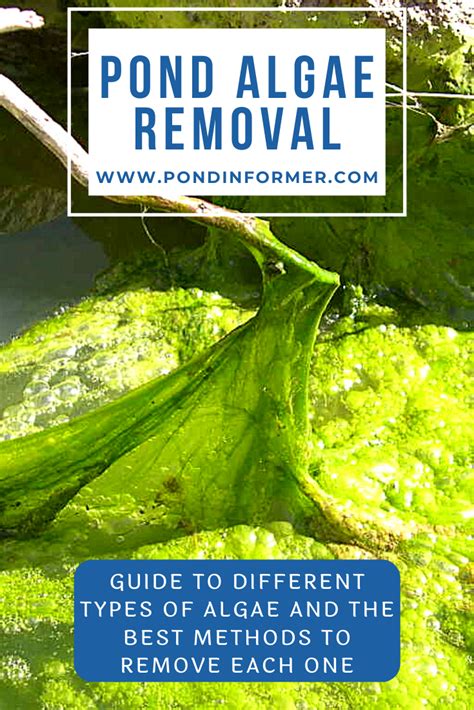How To Get Rid Of Algae In My Pond
Ronan Farrow
Mar 31, 2025 · 3 min read

Table of Contents
How to Get Rid of Algae in Your Pond: A Comprehensive Guide
Algae blooms are a common problem for pond owners, turning once-pristine water murky green and impacting the health of your pond ecosystem. But don't despair! This comprehensive guide will walk you through various methods to effectively remove algae and prevent future outbreaks, ensuring your pond remains a beautiful and healthy haven.
Understanding Algae Growth: The Root of the Problem
Before diving into solutions, understanding why algae thrives is crucial. Algae flourish in conditions rich in nutrients, specifically phosphorus and nitrogen. These nutrients can enter your pond through several sources:
- Excess fish food: Uneaten fish food decomposes, releasing nutrients into the water.
- Bird droppings: Birds frequenting your pond contribute significant amounts of nitrogen.
- Runoff from lawns and gardens: Fertilizers and pesticides washed into the pond act as potent algae food.
- Decaying organic matter: Leaves, dead plants, and other organic debris decompose, releasing nutrients.
Effective Methods to Eliminate Algae
Once you understand the source, you can tackle the algae effectively. Here are several proven methods:
1. Physical Removal: The Manual Approach
For smaller ponds or initial algae outbreaks, manual removal can be surprisingly effective:
- Netting: Use a pond net to scoop out visible clumps of algae. This is best for larger, floating algae mats.
- Pond vacuum: A specialized pond vacuum can remove algae from the bottom and sides of the pond.
2. Biological Control: Harnessing Nature's Power
Biological control involves introducing organisms that naturally consume algae:
- Beneficial bacteria: These bacteria break down organic matter, reducing nutrient levels and limiting algae growth.
- Water snails: Certain snail species feed on algae and help maintain a healthy pond environment.
- Adding aquatic plants: Plants compete with algae for nutrients, helping to reduce algae populations. Choose native species appropriate for your pond size and climate. Consider plants like water lilies, irises, and oxygenating plants.
3. Chemical Control: A Targeted Approach (Use with Caution!)
Chemical algaecides offer a quick solution, but should be used sparingly and only as a last resort. Always follow the instructions carefully and choose an algaecide specifically formulated for ponds. Inappropriate use can harm beneficial organisms in your pond ecosystem.
4. Water Quality Improvement: Long-Term Prevention
Addressing the root causes of algae growth is key to long-term prevention. This involves:
- Reducing excess fish food: Feed your fish only as much as they can consume within a few minutes.
- Regular pond maintenance: Remove leaves, debris, and other organic matter promptly.
- Proper filtration: A good filtration system helps remove excess nutrients and suspended particles.
- Testing water parameters: Regularly test your pond water for pH, ammonia, nitrite, and nitrate levels. This helps you identify imbalances that contribute to algae growth.
Preventing Future Algae Blooms
Prevention is always better than cure. Implement these strategies to minimize future algae problems:
- Regular water changes: This helps dilute nutrients and reduce algae food sources.
- Proper aeration: Adequate oxygen levels discourage algae growth and promote a healthy aquatic environment.
- Shade: Adding shade to your pond can limit sunlight penetration, reducing algae growth.
By understanding the causes of algae growth and employing a combination of these methods, you can successfully manage and prevent algae blooms, keeping your pond healthy and visually appealing for years to come. Remember that patience and consistent effort are crucial for long-term success.
Featured Posts
Also read the following articles
| Article Title | Date |
|---|---|
| How To Find Leak In Aluminum Boat | Mar 31, 2025 |
| How To Get Adderall Out Of Your System Faster | Mar 31, 2025 |
| How To Download 4k77 | Mar 31, 2025 |
| How To Fix Oakley Sunglasses Arms | Mar 31, 2025 |
| How To Export Chase Statement To Excel | Mar 31, 2025 |
Latest Posts
-
Palworld How To Set Admin Password
Apr 03, 2025
-
P1df3 How To Fix
Apr 03, 2025
-
Mother Half Pipe This Is How I Roll
Apr 03, 2025
-
Mommed Pregnancy Test How Early
Apr 03, 2025
-
Mary Oliver How I Go To The Woods
Apr 03, 2025
Thank you for visiting our website which covers about How To Get Rid Of Algae In My Pond . We hope the information provided has been useful to you. Feel free to contact us if you have any questions or need further assistance. See you next time and don't miss to bookmark.
